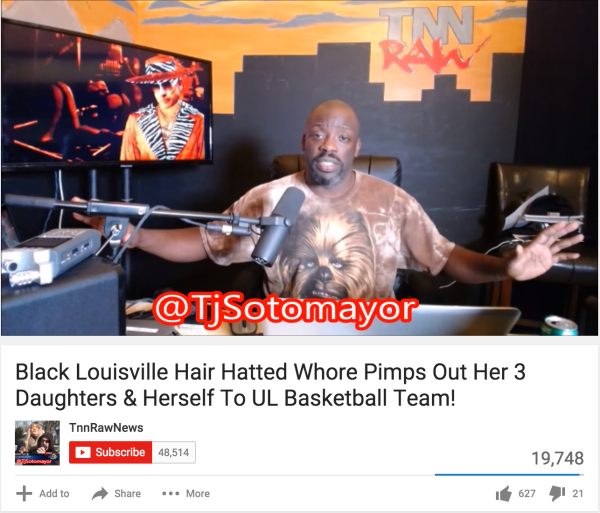Media Timeout: Louisville Recruiting Scandal Sparks Unchecked Wave of Sexism
Posted by Will Tucker on January 6th, 2016College basketball places huge emphasis on individual games — showdowns between top-ranked teams, annual rivalry clashes, single-elimination tournaments — but it’s important to take a step back and look at the bigger picture from time to time. The Media Timeout considers how fans and journalists watch, follow, and talk about the sport.
Controversy placed several college basketball programs squarely in the national spotlight last offseason. The most lurid and sensational of these headlines came from the Bluegrass State, where allegations surfaced in October that Louisville men’s basketball personnel had systematically used sex to lure high school recruits to the school over a period of several years. The outrageousness of the accusations thrust them far beyond the college hoops orbit, into and onto the TV screens, Twitter timelines, and email inboxes of news consumers everywhere.

One video, widely circulated on Twitter, used Powell’s example to attack black women, black coaches, and other groups (TnnRawNews / YouTube)
As it typically does, the intense scrutiny heightened the defensive response from Louisville fans who, under siege, predictably circled the wagons. That came as no surprise, especially considering the confusion and uncertainty that surrounded the allegations of misconduct primarily levied at former assistant Andre McGee. What should be surprising is how quickly the tenor of that response took an ugly turn, as an alarming number of fans appeared more preoccupied with discrediting the accuser on the basis of her gender and sexuality than on any perceived lack of truthfulness.
A Cultural Lightning Rod
As far as we have come as a society on the discussion of gender, that progress has been slow to trickle into the realm of sports talk, whether through social media, online comment sections or talk radio. That space, regrettably, is still the preserve of retrograde thinking about the proper place of women in sports commentary and beyond. Sadly, it is no coincidence that most of the vitriol directed at female sports journalists, especially those who weigh in on cases of alleged sexual misconduct by athletes, follows the same tried-and-true formula: dismiss her viewpoint; call her a degrading name; threaten her with sexual violence.









































